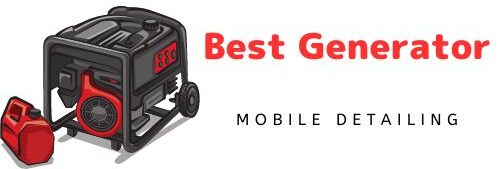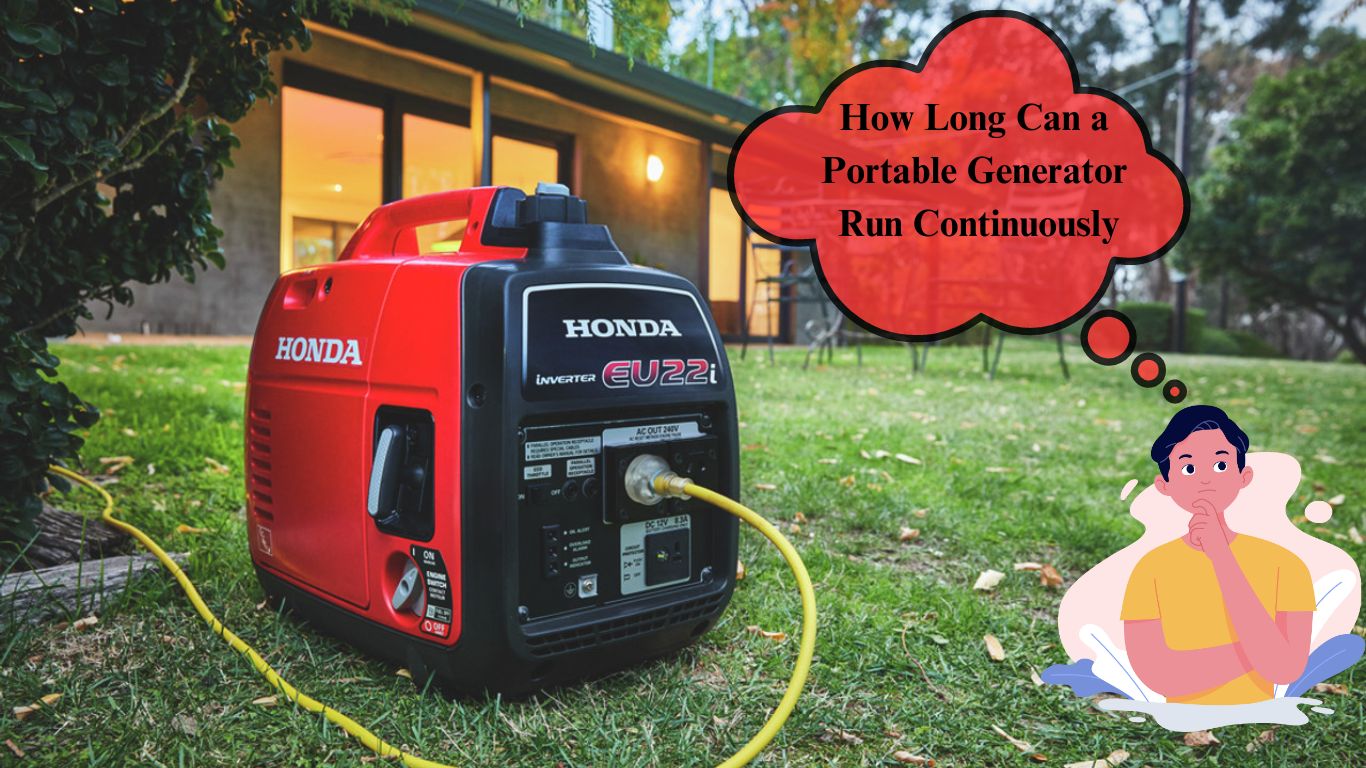Portable generators are invaluable during short-term power outages and crucial for enduring long-term grid failures. However, simply owning a generator is only part of the solution. Once your generator is fueled, connected, and operational, the critical question arises: how long can it run without interruption? The answer to “How long can a portable generator run continuously” isn’t easy because many factors are involved. In this explanation, we’ll delve into these variables to provide the most accurate estimate of how long your generator can sustain power to keep your lights on.
- Definition and Common Uses: A portable generator is designed to transform fuel into electrical power, acting as a standalone energy source when mains electricity is out of reach. Typical applications include supplying backup power during electrical failures, operating tools at construction sites, and powering appliances in remote locations.
- Importance of Runtime in Various Scenarios: The operational duration of a generator is critical to its performance in emergencies, such as extended power disruptions or when essential medical equipment needs to be powered. For commercial entities, it influences the continuity of operations during crises.
- Overview of Factors Influencing Runtime: The continuous operation time of a portable generator depends on several elements, including fuel type, generator size, maintenance condition, and the electrical load it supports. A thorough understanding of these factors enables users to enhance their generator’s runtime and ensure its dependability when needed.
Factors Affecting Run Time of Portable Generators
There can be different factors regarding the runtime that contribute. This, therefore, needs understanding them paramount to guiding one to choose the kind of generator needed to be able to utilize it maximally.

1. Fuel Type and Tank Size:
The type of fuel and the size of the tank will have a great bearing on the generator’s run time. The gasoline model runs for a very short period in comparison to diesel or propane models since it is less dense in energy. On the downside, larger tank sizes would mean longer running times but might also add more weight and increase the generator’s size.
2. Generator Type (Inverter Vs Non-Inverter):
Unlike non-inverter generators, which run at a constant rate, often producing noise from the engine and consequently wasting lots of fuel, inverter generators are designed to operate at variable speeds. This makes them highly fuel-efficient while producing noise levels less than that of non-inverter generators.
3. Electric Demand:
It will additionally compromise the runtime of the load placed on your generator. This, in turn, would lead to the bigger power requirement needed for appliances, like refrigerators and air conditioners, draining the fuel tank much faster compared to smaller gadgets like a laptop or smartphones.
Typical Runtime Ranges for Portable Generators

So, what can you expect from your portable generator regarding runtime? Here are some general guidelines:
- Non-inverter gasoline generators: 4-8 hours
- Inverter gasoline generators: 8-12 hours
- Diesel generators: 12-24 hours
- Propane generators: 8-16 hours
For small to medium portable generators, you can expect the following runtime ranges under typical load conditions:
- 2,000-watt generator: 4-6 hours
- 3,000-watt generator: 6-8 hours
- 4,000-watt generator: 8-10 hours
How to Make Your Portable Generator Last Longer
While it’s important to know the factors that are playing, there are some things you can do to increase the runtime of your portable generator.
- Proper Maintenance: Your generator should be maintained properly, considering regular changes of oil. Neglect of maintenance can lower your generator’s performance and its life.
- Using Multiple Fuel Sources: A dual or tri-fuel generator can be used with different fuel sources, or several fuel tanks can be changed or added to increase their running time.
- Managing Load: Manage the use of appliances and prioritize essential devices to be run by the generator to make the most of generator running hours.
Understanding the Runtime of Your Generator Will Help You Optimize Your Mobile Detailing
The runtime is crucial for mobile detailers since it will determine how far the moving distance of a portable generator can be to optimize its business operations. This, in turn, ensures them that, whenever detailing jobs come, they are well prepared with enough power to ensure each detail is done effectively to the maximum. This can help you:
- Better scheduled jobs: Seeing how your generator runs can better schedule detailing jobs so that there is enough power to complete all jobs without interruption.
- Choose the right equipment: With the output power and runtime of your generator in mind, you can painstakingly select the right equipment for every job so you don’t fall short in the power it takes to get the job done.
- Running time: This will make them aware of the time they have been running the generator. So, this way, the risk of stopping work in the middle of any job due to power running out will be minimized.

The most popular models of portable generators for such a service are as follows
Westinghouse iGen2200: A 2,200 running watt inverter generator with a compact build that provides up to 12 hours of.
DuroMax XP2300iS: A dual-fuel inverter generator that offers 2,300 watts of power and up to 13 hours of runtime on gasoline or propane.
Generac GP2500i: A compact, inverter generator that provides 2,500 watts of power and up to 10 hours of runtime.
See more at Best Generator For Mobile Detailing
Practical Considerations and Safety Considerations
Ensure you always think about your safety before operating with a portable generator. Here are some of the safety tips and practical considerations that can help guide you in maintaining safety for everyone during the operation of a portable generator.
- The generator should always be placed in a well-ventilated area and never near a window or door.
- Keep fuel stored safely in an accessible place to be filled and maintained according to the guidelines of the manufacturer.
- Make sure you service your generator from time to time; if necessary, ensure there are some guidelines following wear and tear, or repairs that need to be done.
Conclusion
In short, it’s crucial to understand the run time if you’re going to be able to exploit it fully. Take, for instance, the many factors that affect runtimes; select the right generator for you, and follow practical tips to increase runtime while ensuring safe operation, because, in any event, you have to stay powered and ready. If you want to keep the mobile detailer or even a householder, you can supply enough required electric power to accomplish the work with a reliable portable generator.
Marion Woods is an accomplished generator technology expert with over 15 years of experience, currently serving as the Chief Technology Officer at GenTech Power Solutions. She holds a Master’s degree from MIT and specializes in enhancing generator efficiency and integrating renewable energy sources. Marion is a respected author and speaker in the engineering community, dedicated to pioneering sustainable power solutions.


1 thought on “How Long Can a Portable Generator Run Continuously”